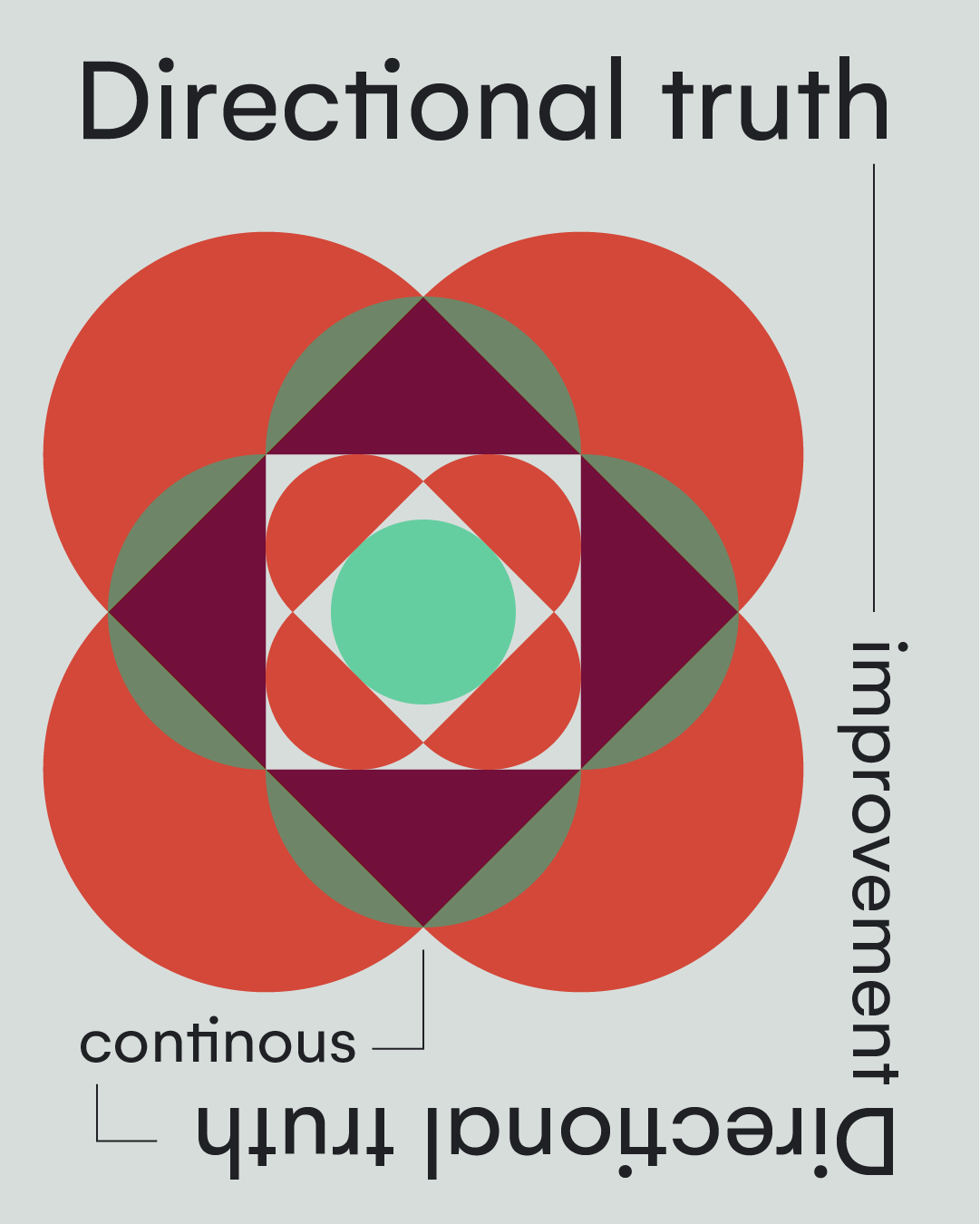What is brand experience? A comprehensive guide
The way customers perceive, interact with and remember your brand forms the foundation of brand experience. It encompasses every touchpoint, from digital interactions to physical encounters, shaping how people feel about and connect with your brand. Unlike singular marketing campaigns or individual customer service interactions, brand experience represents the complete journey a customer takes with your organisation.
We interpret trends in human behaviour to understand that brand experience goes beyond basic interactions—it's about creating meaningful connections that resonate with your audience's needs, values and aspirations. When crafted thoughtfully, brand experience becomes a powerful tool for building lasting relationships with customers.
What is brand experience?
Brand experience is the complete perception a person has of a brand, formed by the sum of every direct and indirect interaction. It encompasses all the feelings, sensations, and thoughts someone associates with your business, from your advertising and website design to your customer service and company values. A positive brand experience builds a lasting emotional connection, which fosters loyalty far beyond a single purchase.
What is the difference between brand experience, customer experience, and user experience?
User experience (UX) focuses on a single product interaction, customer experience (CX) covers all direct interactions throughout the customer journey, and brand experience (BX) is the overarching perception of the brand, including indirect interactions and feelings held by customers and non-customers alike.
These three concepts are related but distinct. Understanding their differences is crucial for creating a cohesive strategy.
User experience (UX)
User experience is the narrowest of the three terms. It focuses on the quality of a person's interaction with a specific product or service, such as a website or a mobile app. UX is concerned with making that single interaction easy, efficient, and enjoyable.
Example: A good UX for an e-commerce website means the search filters are easy to use, the navigation is clear, and the checkout process is frictionless.
Customer experience (CX)
Customer experience is broader than UX. It includes the sum of all direct interactions a customer has with a company throughout their relationship. This encompasses the entire customer journey, from initial contact with a sales team to post-purchase support and communications.
Example: A good CX includes helpful staff in a retail store, a simple returns process, and a personalised thank-you email sent after a purchase.
Brand experience (BX)
Brand experience is the widest concept, encompassing both UX and CX while also including indirect interactions. BX is the holistic perception of the brand held by everyone, not just active customers. It is shaped by advertising, reputation, social media presence, word-of-mouth, and the brand's values.
Example: The brand experience is the overall feeling a person has about a brand - whether it feels trustworthy, innovative, or luxurious - which is formed long before they visit a website or make a purchase.
Why is brand experience important for a business?
Brand experience is important because it is a powerful competitive advantage that drives customer loyalty and sustainable growth. In a crowded market where products and services are often similar, a positive experience is the key differentiator that makes a business stand out. It creates a deep emotional connection that turns satisfied customers into passionate advocates, increasing customer lifetime value and protecting your business from price-based competition.
Core elements of brand experience
The foundation of compelling brand experience rests on several key elements that work together to create meaningful connections with your audience:
Brand touch points
Every interaction between your brand and consumers represents a touchpoint. These include:
- Digital presence (website, social media, apps)
- Physical locations and environments
- Marketing communications
- Product packaging and design
- Customer service interactions
Visual and emotional components
The visual identity and emotional resonance of your brand play crucial roles in experience creation:
- Consistent brand design language
- Colour psychology and brand aesthetics
- Emotional triggers and responses
- Brand personality expression
- Memorable visual elements
Digital and physical interactions
Modern brand experiences must seamlessly integrate both digital and physical realms:
- Online platform optimisation
- In-person experience design
- Omnichannel consistency
- Interactive elements
- Sensory engagement opportunities
Creating effective brand experiences
Building a meaningful brand experience requires careful consideration of both strategic elements and human connection. Think about your own favourite brands - perhaps it's the way an Apple Store makes you feel welcome yet excited about technology, or how Lush creates an immersive sensory experience the moment you walk past their shops.
Strategic approach to design
Brand experience design needs to balance both emotional appeal and practical functionality:
- Understanding your audience's motivations and pain points
- Creating consistent messaging across all channels
- Developing clear brand guidelines that allow for creative expression
- Building flexible frameworks that can evolve with consumer needs
- Ensuring accessibility for all users
Building trust and authenticity
Trust forms the bedrock of lasting brand experiences. Consider how brands like Patagonia have built trust through:
- Transparent communication about business practices
- Consistent delivery on brand promises
- Authentic storytelling that resonates with core values
- Regular engagement with customer feedback
- Clear demonstration of brand values in action
Personalisation technique
Modern consumers expect personalised experiences that make them feel understood:
- Tailored communications based on consumer preferences
- Customised product recommendations
- Personalised digital experiences
- Adaptive content delivery
- Individual recognition across touchpoints
Experience measurement
To understand the effectiveness of your brand experience, consider measuring:
- Brand sentiment and emotional connection
- Customer loyalty metrics
- Engagement rates across channels
- Brand recall and recognition
- Customer lifetime value
Brand storytelling impact
Effective storytelling creates memorable brand experiences:
- Crafting narratives that reflect customer journeys
- Using consistent brand voice across all communications
- Creating emotional connections through shared values
- Developing memorable campaign themes
- Building long-term narrative arcs that evolve with your brand
Brand experience scorecard example
A scorecard can help organise your measurement efforts and link actions to outcomes.
Business impact of brand experience
A well-crafted brand experience delivers measurable business value that extends far beyond immediate sales figures. When customers develop a strong emotional connection with your brand, it transforms their relationship from transactional to loyal advocate.
Building brand loyalty through exceptional experiences creates a foundation of trust that withstands market fluctuations and competitive pressures. Consider how premium brands like John Lewis have maintained customer loyalty through consistent, high-quality experiences across every touchpoint. Their commitment to service excellence and customer satisfaction has created a brand experience that customers actively seek out and recommend to others.
Brand value increases naturally when customers have positive, memorable interactions with your organisation. This enhanced value manifests in several ways: customers become more willing to try new products, they're more likely to choose your brand over competitors, and they're often prepared to pay premium prices for products they trust.
Market differentiation becomes more achievable through distinctive brand experiences. The landscape is very competitive - product features and prices can be easily matched, but a unique and compelling brand experience creates a competitive advantage that's difficult to replicate. Take Selfridges, for example. Their distinctive retail experience, combining luxury service with creative merchandising and innovative events, sets them apart from other department stores.
The relationship between consumer engagement and brand experience works both ways. Strong engagement helps build better experiences, while compelling experiences encourage deeper engagement. This virtuous cycle creates opportunities for:
Long-term relationship building that extends beyond individual transactions Community development around shared brand values Authentic dialogue between customers and brands Enhanced customer feedback and insights Stronger brand advocacy and word-of-mouth promotion
Best practices and implementation
Successfully implementing a brand experience strategy requires careful planning and consistent execution. The process begins with a clear understanding of your current brand perception and where you want to position yourself in the market. This understanding should guide every decision about how your brand interacts with customers.
Creating effective brand experience strategies starts with gathering comprehensive customer insights. Listen to your customers' feedback, analyse their behaviour patterns, and understand their expectations. Use these insights to develop experiences that feel personal and relevant while maintaining consistency with your brand values.
Common challenges often arise around maintaining consistency across different channels and touchpoints. Success requires strong internal alignment and clear communication guidelines. Your entire organisation needs to understand and embody your brand values to deliver authentic experiences at every interaction.
Measuring success goes beyond traditional metrics. While sales figures and customer satisfaction scores remain important, consider tracking emotional connection through brand affinity surveys, social media sentiment, and customer lifetime value. These measurements provide a more complete picture of your brand experience effectiveness.
For practical implementation, consider starting with small, manageable changes that can make an immediate impact. This might mean improving your email communication tone, enhancing your website's user experience, or training customer service staff to better embody your brand values. Build on these successes gradually, always keeping your core brand experience goals in mind.
From working closely with many clients over many years, we see that brand experience evolves continuously. Regular assessment and refinement of your approach ensures your brand remains relevant and engaging while staying true to its core values and promise to customers.
What are the future trends in brand experience?
Three key trends shaping the future of brand experience are hyper-personalisation at an individual level, the convergence of physical and digital ("phygital") worlds, and a focus on radical authenticity where a brand's values are a core part of the experience itself.
To remain relevant, brands must adapt to these evolving consumer expectations.
Hyper-personalisation
The use of AI and data allows brands to move beyond broad segments and tailor experiences to an individual's specific needs, behaviours, and context in real-time. The future of brand experience is one that is uniquely crafted for each person.
Phygital convergence
The line between the physical and digital worlds is blurring. Future brand experiences will seamlessly integrate both realms. This includes augmented reality-enhanced retail environments, smart packaging that unlocks digital content, and hybrid events that provide equal value to physical and virtual attendees.
Final thoughts
As independent brand strategists and consultants at Garden, we understand that exceptional brand experiences stem from a deep understanding of human behaviour and authentic storytelling. We seek the unique and build the loveable, knowing that meaningful connections require more than surface-level engagement.
Remember, brands need nurturing to grow. By maintaining authentic experiences and consistent delivery across all touch points, you'll create lasting connections that drive both business success and customer loyalty.





.jpg)


.jpg)














.jpg)





































































